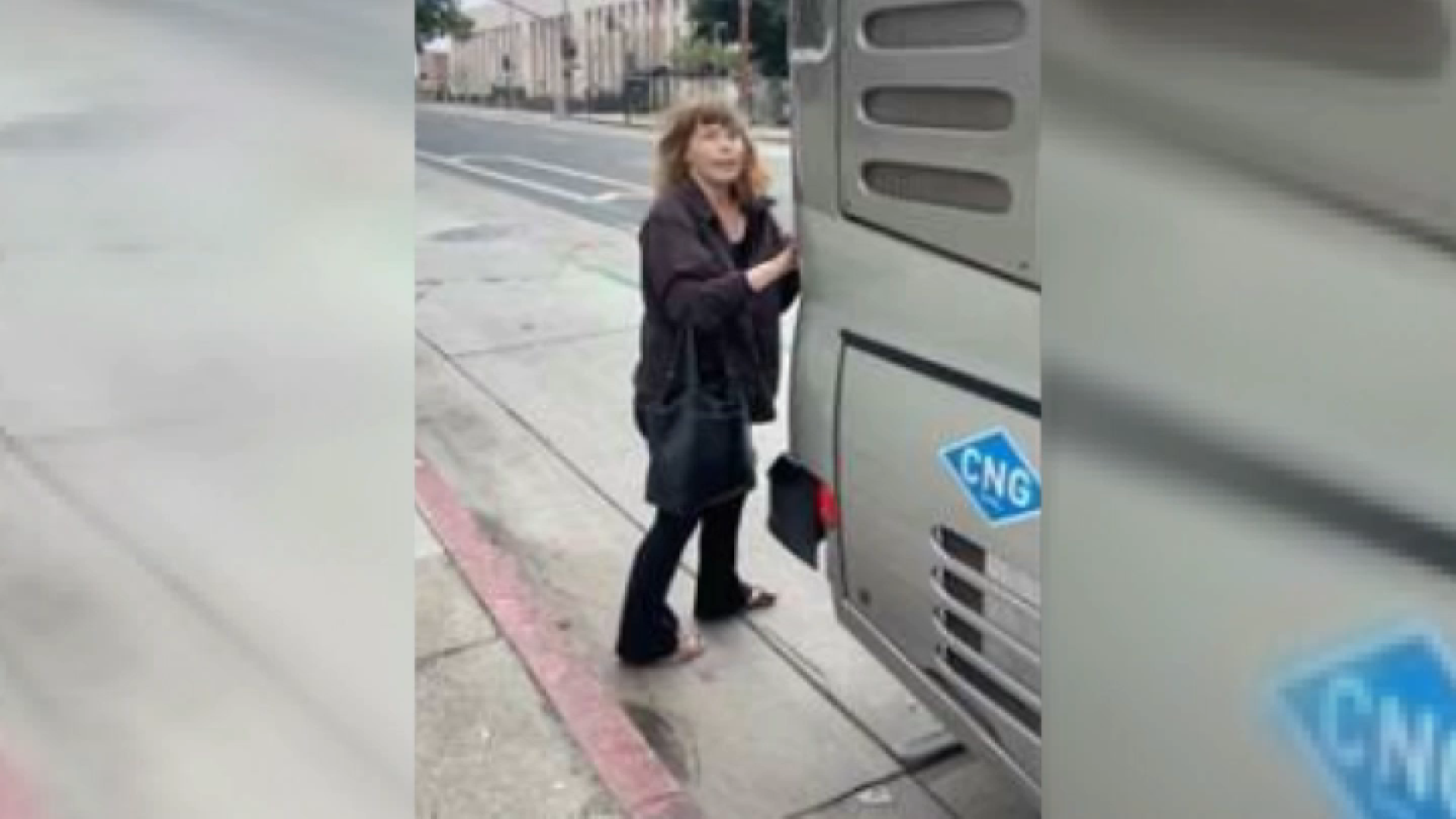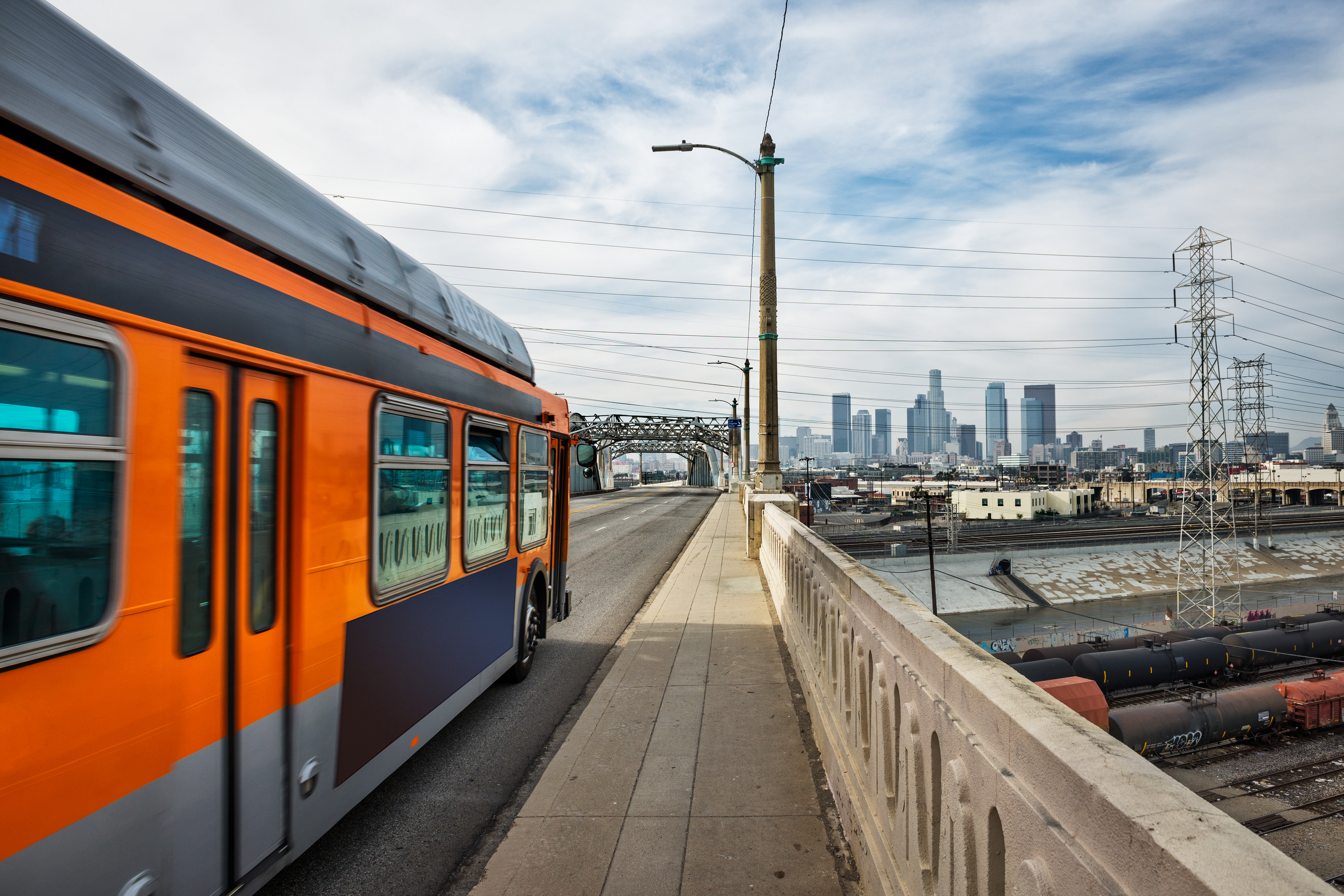For Tulasi Rodríguez, the LA Metro is the only means she has to get to and from work.
The day begins early for her in South Los Angeles. Around 8:30 a.m., Rodríguez heads to the Metro stop at the intersection between 42nd Street and Vermont Avenue.
Despite taking the same route daily, she describes a fear that permeates her commute.
"I like to sit near the door in case something happens," Rodríguez says as she points to the exit from her seat.
Get top local stories in Southern California delivered to you every morning. >Sign up for NBC LA's News Headlines newsletter.
On this day, the first bus is calm with few people on board. The first part of her journey takes about an hour, leaving her near Vermont Avenue and the 105 freeway in Gardena.
Afterwards, she transfers to another bus which takes her to her job as a makeup packer in Lomita. The travelers on this particular bus are mainly women with children and students.
"Many parents are going to drop their kids off in the morning. We should have a safe space for them to feel comfortable on their way to school," Rodríguez points out.
Though she deems this bus safe, she has also encountered a different kind of person on her commute.
"You can get on the bus and run into people selling drugs. [They say] 'I am selling this' as if it were any other object."
This leg of her commute takes about 40 minutes, and she arrives around 10:15 a.m. She gets off the bus close to her place of work, feeling relieved.
"This morning was a good one because, thankfully, I arrived on time."
Rodríguez works Monday through Friday, from 11 a.m. to 5 p.m.
After leaving work, she calls her boyfriend, Luis Gómez, as she walks to the bus stop. She always makes sure to stay aware of her surroundings.
"Even though I left work, I'm still not done. I still haven't gotten home,"she says. "I still feel a bit tense because anything can happen on my way home. Especially after work, if one finds oneself around more people, the bus will be more full."
Rodríguez takes the bus from Gardena and meets up with Gómez at the next stop. The couple discusses their days as they wait for the Metro bus.
"It really does scare me that she travels alone, so I come to meet up with her. If someone loves another person, they meet them where they are," Luis Gómez says.
The trip home is chaotic. The bus is full of families and people returning from work. Because it is a Commuter Express Metro, the trip is shorter this time, around 45 minutes. Even so, the entire journey home takes almost three hours.
After they get off the bus, the couple discusses their worries about the safety of the Metro and what they would like to see happen.
"I think having police officers would be more than enough. But it could also be something like the Metro ambassadors,” Rodríguez said.
Rodríguez explains that she and Gómez are trying to save money to buy a car. With the high cost of living in Los Angeles, it has not been easy.
However, at that time of day, getting home safe after an almost 12-hour work day is the only thing that matters to the couple.
According to Rodríguez, she likes to give herself extra time to get to work, as the commute time varies day by day. In total, this particular day held almost 4 and a half hours on the bus for a 40-mile round trip.
No security officers were identified during the trip that NBC4 accompanied Tulasi Rodríguez on.
Metro sent the following statement to NBCLA.
“We share the concerns of our riders. Our customers deserve a safe ride, so nothing we are doing on is more important than addressing public safety on the Metro System. We want our customers to be and feel safe. That’s why we are increasing the visible presence of uniformed personnel on our buses and trains. We have made station safety improvements and improved bus safety measures, including the accelerated procurement of more protective bus barriers for operators. We are also working to ensure the system is being used only for its intended purpose of transit by, among others, identifying trespassers and removing them from the system. Lastly, we continue to partner with the county, cities and regional agencies to address societal issues such as homelessness, untreated mental illness and drug addiction that can spillover onto our transit system.”



